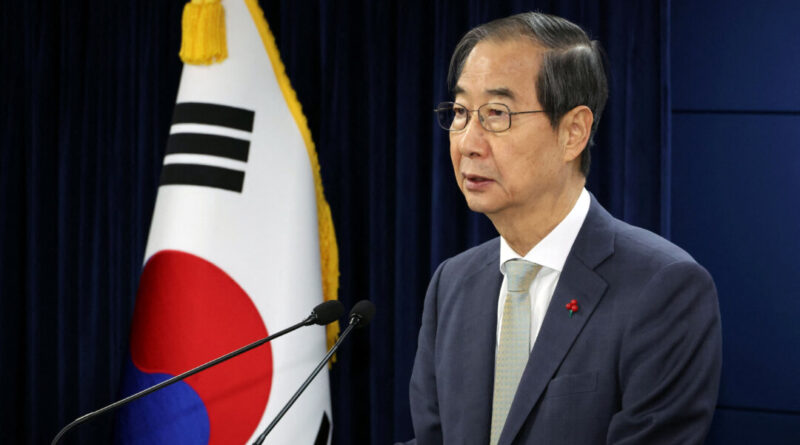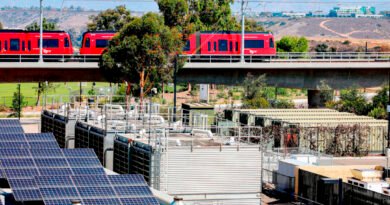Political Turmoil Escalates as South Korean Lawmakers Impeach Acting President
There was an uproar when the Speaker Woo Won Shik announced that a simple majority in the 300-member assembly was all that was required for the vote.
The National Assembly of South Korea impeached the acting President, Han Duck-soo, amidst chaotic scenes where politicians from the ruling party protested the handling of the vote by the parliamentary speaker.
The impeachment motion was passed by the single-chamber National Assembly on Dec. 27 with a vote of 192-0.
Han, 75, from the conservative People Power Party (PPP) like Yoon, was appointed as the acting leader of the country but faced backlash from the liberal opposition Democratic Party (DP) in the National Assembly, leading to calls for his impeachment.
With no set laws on impeaching an acting president, the announcement by Speaker Woo Won Shik that a simple majority in the 300-member assembly sufficed for the vote led to uproar, with the PPP arguing it should require a two-thirds majority.
Upon the announcement of the vote falling short of a two-thirds majority by eight votes, many PPP delegates protested that the vote was “Invalid!” and demanded Woo’s resignation.
No reports of violence or injuries emerged.
Han’s impeachment entails a stripping of his presidential powers until the Constitutional Court determines his dismissal or reinstatement.
The new acting president is set to be the deputy prime minister and finance minister, Choi Sang-mok.
Under his orders, the military deployed special forces to various institutions, including the national assembly, the election commission, and the office of a liberal YouTube commentator.
At least 12 National Assembly members from Yoon’s party sided with the opposition to support his impeachment on Dec. 14.
The Constitutional Court has 180 days to decide on Yoon’s reinstatement or removal. Removal would necessitate a new presidential election within 60 days.
Yoon and members of his administration face criminal investigations for insurrection related to the martial law declaration.
The reasons for Han’s impeachment are multifaceted, with resistance to DP’s efforts to fill court vacancies, push for an independent investigation into Yoon’s martial law decree, and promotion of pro-farmer legislation being cited.
Similar to the Supreme Court in the United States, the Constitutional Court in South Korea serves as the top legal authority.
Constitutional Court Judge Shortage
Typically, the Constitutional Court has nine judges, but prior to the martial law crisis, it only had six, prompting calls from DP for the swearing-in of three new justices.
DP-appointed judges were more inclined towards liberalism, raising the likelihood of supporting Yoon’s impeachment.
On Thursday, Han stated that without bipartisan approval, he could not appoint the three new justices as acting president.
A DP spokesperson criticized Han’s refusal, labeling it as an abuse of power.

Lawmakers of the ruling People Power Party protest during a plenary session for the impeachment motion against South Korean acting President Han Duck-soo at the National Assembly in Seoul, South Korea, on Dec. 27, 2024. Ahn Young-joon/AP
Prior to the vote, the leader of PPP, Kwon Young-se, warned that Han’s impeachment could spark a financial crisis, as reported by Yonhap news agency.
By Thursday, the South Korean won had weakened to its lowest point since March 2009 due in part to the strengthening dollar.
“The United States anticipates collaborating with Acting President Han on all our shared interests,” Miller expressed at that time.
South Korea’s presidential residence, previously a palace known as the Blue House until 2022, was turned into a public park by Yoon after his election in 2022, with him choosing to base himself in a government building.
Contributions to this report were made by the Associated Press and Reuters.





